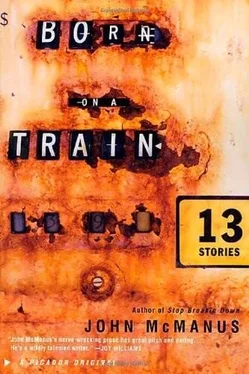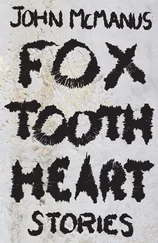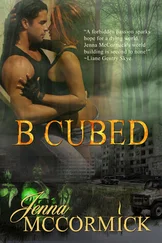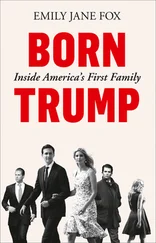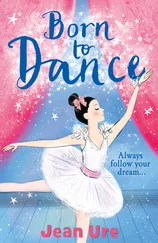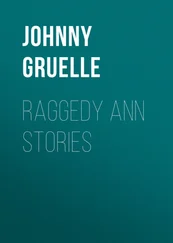Libby?
What.
You could—
She stopped talking. I waited for her to finish.
You could do like Eammon did, she said.
Like he did when?
You could get on there and find me somebody.
Mother—
Because it’s your age, not mine.
Then you know it was him.
It’s your generation that knows all that talk. All those acronyms and symbols.
I don’t know any acronyms.
The whole language of it all. I can’t really even type.
I started to shake, although I didn’t want to.
That’s why I could never be a secretary, she said. The typing.
One two three four five six seven eight nine ten one two—
All those rooms of people typing, and it’s so fast, it just goes right down the screen. Forty in a room at once now. The limit used to be twenty-three.
I don’t know what you’re telling me.
The ones who type fast look smarter than the ones that don’t. It’s not how you spell things.
Please be normal.
But in spite of it all they like me, over and over, they like me.
I just want you to be normal.
Honey, she said.
I want to sit here and listen to you be normal.
Say you’ll do it. You could choose the place that way. The area.
I choked on what I tried to say, which wasn’t anything.
Just once, she said. Like Eammon.
I’ll never do anything like Eammon.
You don’t care about me like he cares about Hiram.
He doesn’t care about Hiram any more than I care about you.
Mother stared at me.
Stop staring, I said. Why are you staring?
Because it sounded funny, she said, about caring, the way you said it.
I didn’t make the words, I said.
Of course you didn’t. I was saying them before you were even born.
We piled all the dishes in the sink. Mother squirted streaks of Joy across the pots and plates until she’d used it all up, and she placed the empty bottle in the cabinet. I could tell from how she nodded her head like a dove that we’d be leaving soon. Mother followed me into the living room and said, Look up what kinds of birds they have in Georgia.
You don’t look up Georgia. You look up a specific bird, like robins.
Look it up then.
She opened the closet door and got her iron and wrapped its cord around the handle and poured the water into a potted corn plant.
I’m sure there are robins in Georgia, I said.
Mother was crying, of course, and I felt guilty. I wanted to pat her shoulders, but it seemed awkward. We’re so mean to each other, she said.
Her warble was less musical than the chirps of finches on the porch, and weaker, with tinkling trills like weeping.
What day is it? she asked.
Today.
It could be my birthday, and you wouldn’t even know.
This isn’t spring, I said.
You wouldn’t even know it if it was.
Robins are considered a harbinger of spring, although in winter they frequent mostly cedar bogs and swamps. As with many birds, their mortality rate is about eighty percent a year. Their song is a series of rich caroling notes: cheer-up, cheerily, cheer-up.
Jackson and Leroy played video games as Mother packed her things. They shared a glass of milk, because it was the last of the gallon, and the house was empty of food except for spices. Hiram wasn’t coming home until tomorrow. I hoped the boys would have enough sense to walk down to the Mick-or-Mack and buy some dinner, although we didn’t leave them any money when we left.
Mama said the way to keep a diary was to write down the opposite of everything that happened, so she gave Jason a blank book so each night he could tell how all the boys played kick the cans until the bogeyman came. How the plumbing still worked in their old bungalow, how Mama could still walk, and how her black hair fell onto his face when she tucked him in with his dolls and stuffed animals lined up to save him from dying inside the crack between the wall and his twin bed.
Won’t I remember it the other way? said Jason.
You’ll read it this way, she said.
Then I’ll remember both ways, he said.
That’s your kid memory. When you’re grown you just remember a year.
You remember the wreck, said Jason.
That’s just cause you remember too, said Mama, her rainy voice pointed at the gray sky, which the bedroom window chopped into eight rectangles joined by crows that flew across them all and suddenly were dead, because Jason was fifteen now, reading of how he’d crossed the creaky woods at night and mooned trucks on the highway with his friends, but he couldn’t remember their names or what they were the opposite of. He’d written nothing of their faces, only Mama’s. Once a month a truck delivered groceries from town twelve miles away, but Mama needed milk each day so her bones could grow back. Jason would walk through the woods to the minimart to buy it. He could buy nineteen months of milk with all the coins they’d rolled, and that wasn’t the opposite of anything; it was just true.
Get two today. The white kind.
It’s all white, Jason said.
The bottle cap, said Mama, and Jason nodded. He walked the trail to Mister Gas where the sun scorched junebugs on the highway beneath a row of jack pines. Shawn was a hawk-faced boy who looked up at the pines while he pumped gas. His blue-white eyes cast a radiant shield over the whole service station. He talked like his mouth was scraping underground on broken bricks: Where is it you walked from.
It was a mile and a quarter through the woods to Mama’s house, and it was another mile to the abandoned limestone quarry where fallen cranes sank their rusted fangs into two pits of murk.
Up yunder? said Shawn, pointing at the hillside.
About a mile, said Jason. They’d never spoken to each other before. A flatbed truck hid Shawn in a cloud of dust that rose up as tall as the treetops. Coke lasted me fifty miles, said a leathery face when the dust settled. When the bottle hit Jason’s shoulder instead of the trash bin, Jason hoped Shawn had seen it; he thought of the scent of Shawn’s sweat, how it had smelled in his dream about the cowhide lash. He’d thrown his underwear away so Mama wouldn’t see; he’d left the trash bag in the woods on the way down to Mister Gas. He bought two jugs of milk and stood on the concrete island as Shawn filled the tank of a red Tundra. He didn’t want to walk back home. He’d heard about faraway places where you slept outside at night, where adults were only fourteen, deserts or something, but the milk was getting warm, so he started back up the hill and thought about tomorrow, which was only June first even though the junebugs had already died.
What were you thinking about while you walked? said Mama back home.
Jason paused. The trees, I guess.
I felt it, she said. Both my legs twitched.
I forgot my watch, said Jason.
Think about eleven minutes ago, she said.
Jason remembered thinking of Shawn pressing him into loblolly pine bark, naked in mud as the rough ridges of bark mashed into his chest. The opposite of eleven was negative eleven. Twelve minutes now, she said. I felt it working.
I don’t think it was, said Jason, but he didn’t want her legs to be his fault.
Think how you did it, she said. I felt your steps.
I can’t remember.
Was it my face? My voice?
When Jason met her eyes, she nodded.
The voice, she repeated.
Jason tried to nod his head, but it was a lie; there hadn’t been any minutes.
We’ll order a tape recorder from the Penney’s catalog, she said.
I stepped on all the roots like you told me to.
Good, she said, nodding so hard that the mole on her neck shook. Jason wished he were excited too. They hadn’t shared a moment in a long time.
Читать дальше
